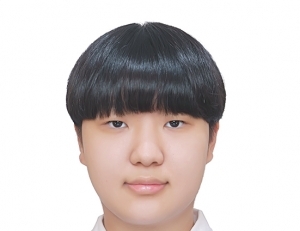“Are we truly free today?” Classical literature is far more than time-honored stories. It offers profound insights into human nature and society that transcend time, remaining a valuable resource for examining the challenges our world faces today. This article will draw on George Orwell’s 1984 and Charles Dickens’ Oliver Twist to explore the contemporary issues of youth housing and the emergence of a surveillance society in South Korea.
Different in time yet united in spirit, both works raise the very same question for our age. The oppressive structures that curtailed freedom in these classic novels are not simply relics of the past. Rather, they have resurfaced in new forms. Today’s young generation is navigating a landscape where their personal lives are constrained by unstable job markets, soaring housing costs, and digital surveillance. While a wide array of choices exists on the surface, the actual scope of life they can choose is gradually narrowing.
The totalitarian system in 1984 controls individual thought and behavior, while the society in Oliver Twist constrains personal lives through poverty and inequality. Though they operate in different ways, both works sharply expose social structures that obstruct the value of freedom. At its core, that same structure repeats itself in new forms today.
We long for freedom like Winston from 1984 and desire a dignified existence like Oliver from Oliver Twist. This article uses the lens of classic literature to reflect on modern society and re-examines the freedom we take for granted, questioning the constraints under which it operates.
[1984]
Overflowing freedom, draining decisiveness… Modern people caught in ‘choice fatigue’
‘What should I watch today?’ — Is choice a freedom or a burden?
Lunchtime. Mr. A opened Netflix to pick a movie, but after 30 minutes of scrolling, he still hadn’t decided. In the end, he turned off Netflix, and his YouTube “watch later” list only got longer as his lunch break came to an end. This difficulty in making even small decisions reflects the psychological burden of modern society known as choice fatigue. According to a survey conducted by our newspaper, 93.6% of 31 respondents said they had given up watching content after trying to choose something on an OTT platform. On average, 45.2% reported spending more than 10 minutes just deciding what to watch, and as many as 77.4% were dissatisfied with recommendation algorithms (curation features). From picking what to eat to choosing what to watch, we are faced with countless decisions at every moment. In other words, even in a society that celebrates freedom of choice, more and more people complain of being worn out by it. In this world that promises infinite freedom and endless options, can we really say we are completely free from the “Big Brother” of 1984?
Another face of Big Brother: the real cause of ‘choice fatigue’
When compared to the society depicted in 『1984』, where freedom was suppressed, another face of psychological control in our time is revealed. George Orwell’s classic 『1984』 portrays a totalitarian state called Oceania, where individual freedom is thoroughly oppressed. In this world, choice itself is fundamentally forbidden, and individuals are controlled by the absolute power of the government’s “Big Brother,” which dictates their thoughts, language, and even memories. The protagonist, Winston Smith, longs for the mental autonomy stripped away by the regime, declaring that “Freedom is the freedom to say that two plus two make four.”
Meanwhile, today we experience a completely different form of control. With the rise of digital technology and platforms, we live in a society that offers unlimited choices—from content and products to information and even human relationships. On the surface, this appears to be an expansion of freedom, yet in reality more and more people complain of decision paralysis and psychological fatigue. In one society, freedom was absent because choice was forbidden; in the other, freedom becomes meaningless because there are too many choices. The irony shared by both is that making truly autonomous decisions is equally difficult.
Choice fatigue is a psychological phenomenon in which decision-making becomes increasingly difficult as the cognitive burden grows when an individual faces too many options. Psychologist Barry Schwartz, in his book 『The Paradox of Choice』, points out that “the more choices people have, the less free they actually become, and the more they feel paralyzed.” He explains that as the number of options expands, people begin to expect better outcomes, which increases the pressure of decision-making as well as the regret that follows.
This psychological burden is even more pronounced in today’s digital environment. With a single smartphone, we must constantly choose among endless options for content, food, products, and even relationships, leaving us stuck in a daily swamp of choices. According to our survey, 41.9% of respondents reported giving up on ordering food after struggling to choose a menu on delivery apps, and 67.7% said they had trouble selecting products while shopping online. More than 71% admitted to feeling stressed even over small decisions such as “what to eat for lunch” or “which clothes to wear.” In fact, 74.2% of respondents said that “freedom of choice itself feels like stress.”
Although we expect freedom, in reality we live under the constant pressure of choice. As most consumption now happens through mobile platforms such as OTT services, food delivery apps, and online shopping, people are endlessly comparing, evaluating, and deciding—consuming a significant amount of energy in the process. Ultimately, the abundance of choice has become the very cause of fatigue, leaving us trapped in a paradoxical structure where opportunity leads to exhaustion.
From Big Brother to Big Tech: the unexpected evolution of control
The method of control described by Orwell in 『1984』 was clear. The citizens of Oceania had no room for choice. They were forced to accept the ideology of the Party, to love only what the Party permitted, and to do only the work the Party assigned.
By contrast, in 2025 big tech companies employ the opposite strategy: “We’ve prepared everything for you—feel free to choose.” Google promotes personalized search results, Netflix advertises customized recommendations, and Instagram highlights interest-based feeds. On the surface, these appear to grant freedom, but in reality they allow people to choose only among the options already filtered by algorithms.
In Orwell’s novel, “Newspeak” was a tool designed to restrict thought by reducing language. For instance, the word “freedom” was stripped of its political meaning, leaving only a physical sense behind. In modern society, “algorithmic Newspeak” takes on this role. YouTube, for example, repeatedly exposes users to similar content based on their viewing history. A user who mainly watches conservative political channels is gradually recommended more extreme conservative content, while one who prefers progressive channels is led toward increasingly radical progressive material.
In 『1984』, the telescreen was a device forcibly installed by the state to monitor individuals 24 hours a day. Today, however, we voluntarily carry a “modern telescreen” in the form of a smartphone, holding it in our hands around the clock. While the telescreen could never be turned off and maintained constant surveillance, smartphones are similar in that they keep us connected to a 24-hour system—even though we use them by our own choice.
According to a 2024 survey by the Korea Communications Commission, 75.3% of Koreans perceive the smartphone as an essential medium, with more than 90% of people in their teens through their 40s naming it indispensable. A 2023 study by the Ministry of Science and ICT also found that 23.1% of the population fell into the “risk group” for smartphone overdependence. This may represent a form of control far more sophisticated and effective than Orwell ever imagined—because it operates not under the name of ‘surveillance,’ but under the guise of ‘voluntariness.’
So how can we free ourselves from this kind of “digital control”? Experts suggest that we need to reduce unnecessary moments of decision-making through the “structuring of choices.” Companies and platforms, they argue, should also ease users’ burdens by offering “decision-making support” services and ensuring “algorithmic transparency.” In fact, global attention and responses to this issue are spreading, as seen in Europe’s Digital Services Act (DSA) and the digital detox movement in the United States.
According to our survey, individuals attempt to reduce choice fatigue in various ways: by repurchasing products they have bought before (45.2%), relying on others’ recommendations (35.5%), or searching for reviews themselves (77.4%). Some respondents even admitted, “I just give up and eat whatever.” Companies, too, are introducing “decision-making support” features, such as Netflix’s “Play Something” function that decides what to watch for the user. Yet, practical solutions like these have their limits.
George Orwell’s 『1984』 raises a fundamental question about the nature of freedom. Even within a totalitarian society of surveillance and control, the protagonist Winston Smith struggles to preserve his autonomy—the ability to think and decide for himself. He clings to the simple truth that “2 + 2 = 4,” but in the dreaded Room 101, he ultimately breaks down.
In the 21st century, we seem far wealthier and freer than in the future Orwell imagined. With just a smartphone, an endless array of choices is at our fingertips, and it feels as though we can do anything at any time. But are these decisions truly made by our own will? Food delivery apps may display hundreds of options, yet we often end up choosing from the “recommended menu.” Netflix may offer a wide variety of content, but what we watch is usually decided from the lists the platform presents to us. We appear to be making constant choices, but the more crucial “freedom not to choose” is gradually disappearing.
This is why we must once again ask what freedom means and redefine it. True freedom is not measured by the number of choices available, but also includes the right not to choose—the freedom not to open Netflix, not to use a delivery app, and not to look at a smartphone. This is more than simple restraint; it is a declaration that I will take control of my own life. Orwell’s message that “freedom is the freedom to say that two plus two make four” still holds true today. In the face of invisible digital control, the power to decide what to engage with—and what to refuse—is the key to experiencing freedom in a qualitative sense, and it marks the starting point of reclaiming the autonomy we have been losing.
[Oliver Twist]
A reality stripped of the very conditions to choose: 『Oliver Twist』 in the present tense
Yet even this so-called “freedom of choice” can only exist when certain social conditions are guaranteed, which brings us to another paradox of freedom. Charles Dickens’s 『Oliver Twist』 reveals another harsh reality of modern society through the life of Oliver, an orphan who, from the moment of birth, is pushed outside the social system with no choices at all. If Big Brother in1984suppressed freedom through “excessive control,” Oliver’s reality shows how “structural deprivation” can make freedom itself impossible. Interestingly, young people in 21st-century Korea experience both forms of oppression at the same time. On the surface, they suffer from “choice fatigue” in front of seemingly endless options, yet in reality they are deprived of the very conditions for choice, like Oliver, due to unstable employment and housing insecurity.
For Oliver, a humane life was never allowed, and freedom was never given. The novel exposes the inhumane poorhouse system and the exploitative labor structures of the 19th century, laying bare the absurdities of a social order that individuals could not change by their own will. The reason we reflect this story against the reality of today’s young people in Korea is clear: the conditions Oliver endured in the 19th century are not so different from the insecurity felt by youth now. Behind the glittering façade of “choices” lie unstable jobs, excessive housing costs, low wages, and an uncertain future.
Today, young people graduating from college must write hundreds of cover letters and cycle through internships and temporary jobs, all while looking toward the threshold of permanent employment. This process is closer to “survival” than to a genuine “choice”; it is a path forced by social structures. The youth unemployment rate approaches 7%, while housing costs take up more than 30% of monthly income. In Seoul, it takes an average of over 18 years for a young person to purchase a home—a brutally harsh reality. More than half of job seekers now aim not for permanent but for temporary positions. This may appear to reflect a free life, but in the end it simply follows the path imposed by society.
The housing problem facing today’s young people is equally severe. High rent and lease costs, widespread housing fraud, insufficient housing support policies, and poor living conditions all threaten their lives. Such instability in housing leads to psychological stress and financial strain, which in turn results in the loss of individual freedom and the ability to choose. Interviews with those directly affected reveal that many young people, like Oliver, feel unable to fully shape their own lives. For example, one recent college graduate who had just landed a job said, “After being scammed out of my deposit, it’s still hard to find a stable home. Without security in housing, I can’t prepare for the future.” This mirrors the reality of the 19th century Oliver, who was deprived of the right to choose.
In this way, the methods of surveillance and control in society have also changed. In Oliver’s time, “Big Brother” took the form of state institutions and political power, but today surveillance is carried out by algorithms and AI-driven platforms. Digital surveillance may seem to understand us well, yet it ultimately makes even our thoughts and ideas predictable, threatening the freedom of independent thinking. In the SNS environment, where human relationships are based on competition and comparison, genuine bonds are disappearing, and even humanity itself becomes a form of marketable value. Advertisements and media proclaim, “The choice is yours,” but in reality, those choices are closer to being imposed within a predetermined social structure.
Oliver’s experience in the novel—being dragged into labor exploitation and eventually entangled in crime—echoes the reality of today’s platform workers. They live lives bound to constant calls for work, with “autonomy” serving only as a façade. A drop in ratings means fewer jobs and a direct threat to their livelihood. On the surface, it may appear that they are working freely, but in truth it is nothing more than a reflex for survival. This reality resonates with Oliver’s haunting question: “Was this really something you chose to do?”
So are we truly free? The question posed in Oliver Twist still resonates with us today. Freedom often turns out to be nothing more than a carefully constructed illusion, something we believe to be our own choice even as it is imposed upon us. For countless young people in the city, the suppression of emotion and the experience of forced isolation lead to the absence of genuine human connection. Desires shaped by advertising and media disguise themselves as personal freedom, but in reality they are tools that compel consumption. In the world of social media, where competition and comparison dominate, young people lose their sense of self, living in a society where both consumption and relationships operate less as choices than as inevitabilities.
These facts remind us once again of the “reality we cannot help but give up.” From dating, marriage, and childbirth to housing, relationships, and even the direction of life itself, the phenomenon summed up as the “N-po generation” is not simply the result of personal choices but rather sacrifices imposed by society. In the end, like Oliver in the 19th century, today’s youth live deprived of agency and stripped of true freedom. Now more than ever, we need deeper reflection on the structural contradictions and inequalities of our social system, and stronger calls for change.
George Orwell’s 1984 and Charles Dickens’s Oliver Twist may differ in historical context and form, but they pose a single, unifying question to us all: are we truly free? While 1984 portrays individuals stripped of agency under totalitarian rule, Oliver Twist exposes how poverty and institutional inequality can dictate a person’s life. The critical awareness these two classics embody remains profoundly relevant in today’s society.
Contemporary individuals may appear to have freedom amid a multitude of choices, yet they are increasingly burdened by the fatigue of endless options and the relentless lure of algorithms. Similarly, while young people seem to have a wealth of opportunities to enter society, they are often confined by the harsh realities of job insecurity and housing instability. Though the mechanisms of control have evolved, the inability of individuals to exercise genuine agency within reality continues to repeat itself.
Contemporary individuals may appear to have freedom amid a multitude of choices, yet they are increasingly burdened by the fatigue of endless options and the relentless lure of algorithms. Similarly, while young people seem to have a wealth of opportunities to enter society, they are often confined by the harsh realities of job insecurity and housing instability. Though the mechanisms of control have evolved, the inability of individuals to exercise genuine agency within reality continues to repeat itself.
Editor-in-Chief Cho Seo Yun
Planning & Marketing Editor Lee Chae Eun
83rd Cub Reporter Kim Ye Lim
84th Cub Reporter Lim Hyo Jin
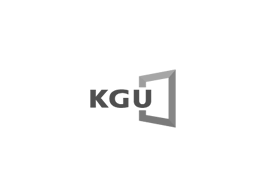 Freedom Given to Youth: An Opportunity for Choice or a Burden of Constraint?
“Are we truly free today?” Classical literature is far more than time-honored stories. It offers profound insights into human nature and society that transcend time, remaining a valuable resource for examining the challenges our world faces today. This article will draw on George Orwell’s 1984 and Charles Dickens’ Oliver Twist to explore the contemporary issues of youth housing and the emergence of a surveillance society ...
Freedom Given to Youth: An Opportunity for Choice or a Burden of Constraint?
“Are we truly free today?” Classical literature is far more than time-honored stories. It offers profound insights into human nature and society that transcend time, remaining a valuable resource for examining the challenges our world faces today. This article will draw on George Orwell’s 1984 and Charles Dickens’ Oliver Twist to explore the contemporary issues of youth housing and the emergence of a surveillance society ...

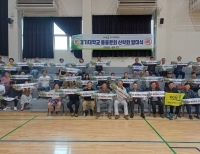 [단신] 산악회, 본교 동문의 버팀목이 될 수 있도록
[단신] 산악회, 본교 동문의 버팀목이 될 수 있도록
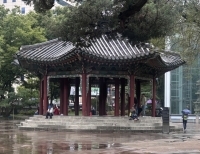 [사회메인] 노인 인구 1,000만 시대, 준비 없는 사회가 불안해
[사회메인] 노인 인구 1,000만 시대, 준비 없는 사회가 불안해
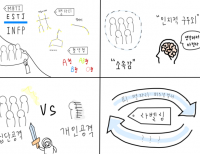 [네컷만화] 라벨링 문화
[네컷만화] 라벨링 문화
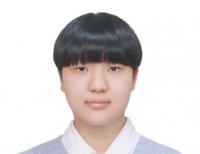 [진리터] 결국 우리 모두 돌아볼 것이니
[진리터] 결국 우리 모두 돌아볼 것이니

 목록
목록





